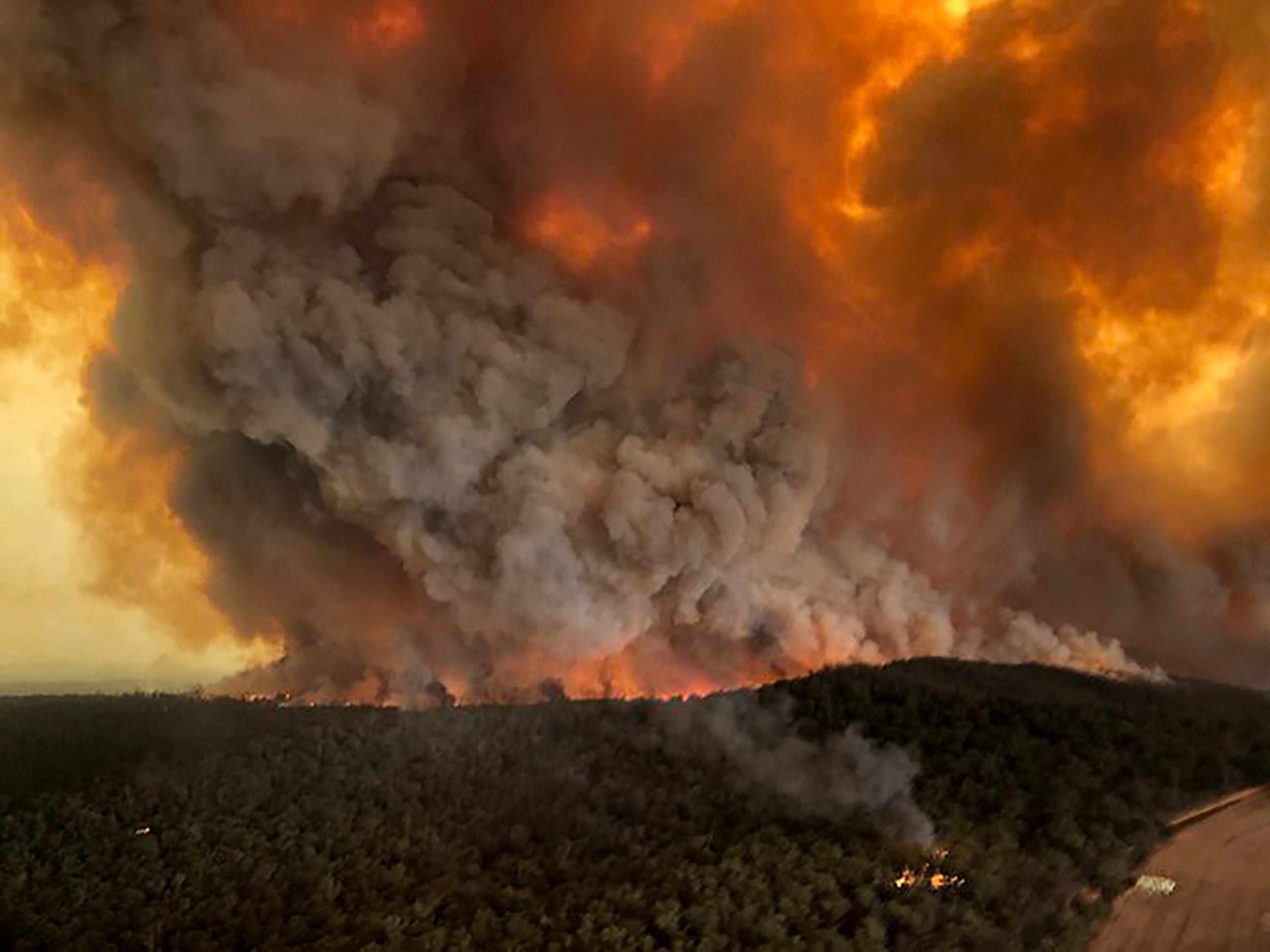The world is burning – but firms only care when the smoke halts mining
There would be a deep irony in a carbon company’s production being hit by wildfires, if only it wasn’t so sad, writes James Moore


Greta Thunberg gave Davos’s corps of self-satisfied billionaires and their political flunkies a richly deserved telling off – and you only needed to take a brief look at BHP Billiton’s results to see why it was necessary.
The black smoke of bitter irony belched from them, and no one should feel more bitter than the Australians caught up in the wildfires that have crimped the company’s coal production in New South Wales.
“Smoke from regional bushfires and dust have reduced air quality at our operations, which has impacted December 2019 production. We are monitoring the situation and if air quality continues to deteriorate then operations could be constrained further in the second half of the year,” BHP stated in language blander than a packet of Tesco value white bread rolls.
But wait, what’s this? “Guidance for the 2020 financial year remains unchanged at between 15 and 17 million tons.”
Well thank goodness for that. The hit this carbon company is taking from the carbon spewed out by its products? Shouldn’t impact 2020 forecasts. Phew!
BHP’s trading statement would be darkly comic if it wasn’t so sad. “Pretty much nothing has been done,” said Greta, who told her audience that we (and the do nothings in chief among them in particular) need to “start listening to the science” and “actually start treating this crisis as the crisis it is”. She was right.
The teenage activist is often characterised as an alarmist by a certain type of old white bloke. Donald Trump, Jeremy Clarkson, Meat Loaf and the rest. The responses from these people when she’s spoken out have ranged from dismissive to aggressive (Clarkson called her “mad and dangerous”). It might just be me, but it does rather seem that they’re a tad intimidated by young women with opinions that they express forcefully.
They’d much rather put on their readers and look at the BHP results, which say don’t worry your sweet little heads because this is just a hiccup and your dividends should be OK.
Expect that there is something to worry about. The evidence is there wherever you look. It’s there in the reports about sea temperatures, in the sea levels, in the retreat of glaciers, in the run of hottest year records that keep being set. It’s there in the pall of smoke over parts of Australia that’s creating problems for BHP. All natural, they claim.
It’s only that in the works of fiction pumped out by the climate denial industry.
This is starting to be recognised in some corporate circles because, as the BHP results demonstrate, sooner or later it’s going to have an economic impact.
The time will come when it does start to hit forecasts, and that means it will hit CEOs’ bonuses and there’s nothing CEOs like better than bonuses.
Some are even having theirs linked to somewhat nebulous climate targets. Did anyone say “greenwashing”. Yes you there with the placard at the back. Security. Please escort them from the building.
The problem with these initiatives is that they don’t go far enough. A point made by Thunberg, who has spent a year trying to publicise the findings of a 2018 Intergovernmental Panel on Climate Change.
It shows countries can only release another 420 gigatons of carbon dioxide to keep the rise in global temperatures to under 1.5C.
At current levels, we’re looking at that amount being emitted in eight-and-a-half years. Meanwhile, according to Greenpeace, banks have provided $1.4tn (£1.1tn) of financing to the hydrocarbon sector since the 2015 Paris accords set new emissions reduction goals.
That should give some perspective when companies, and banks in particular, pretend they care about climate change in their annual reports.
To combat the issue effectively businesses are going to have to accept some short-term pain, and that means hits to their near term forecasts or however they like to express it. If they don’t those forecasts are going to get smashed to pieces further on out. Trouble is recognising that requires them to look past their own noses and then past the next three months, and they’re not there yet.
Maybe it’ll take a climate profit warning for the penny to drop. If so, the sooner it emerges, the better.
Join our commenting forum
Join thought-provoking conversations, follow other Independent readers and see their replies
Comments